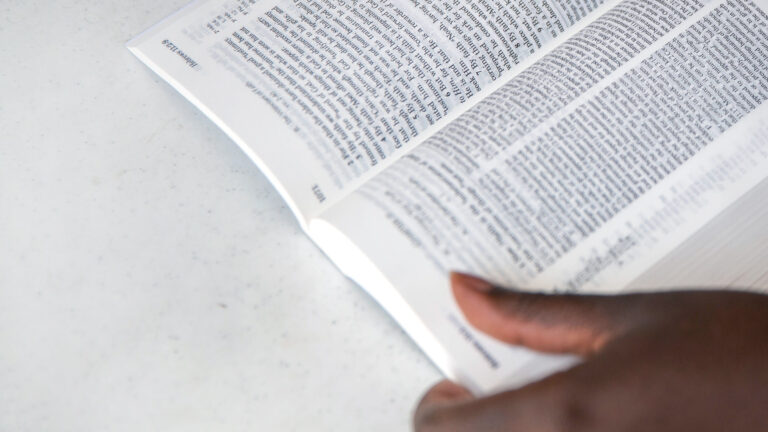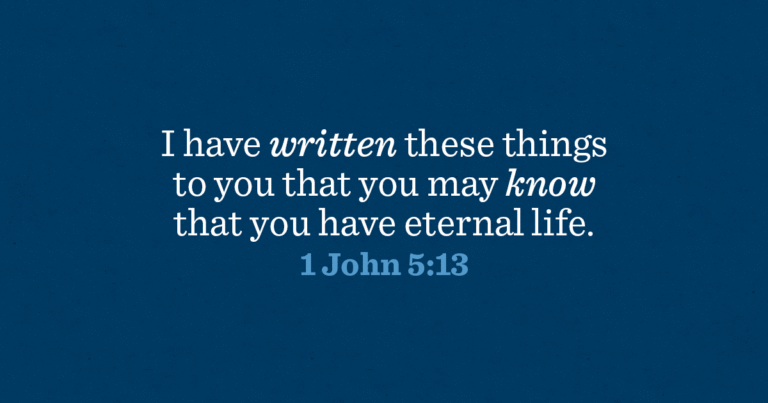How to Be Freed from Anxiety according to Philippians 4:6

Originally posted on the Bibles for America Blog.
In Philippians 4:6, Paul exhorted the believers to do something that seems to be impossible:
“In nothing be anxious.”
The world today is full of large-scale catastrophic events—war, pandemics, economic uncertainty, senseless violence, and social unrest. Things we never thought would happen have suddenly come upon us, affecting all of us. And there’s no escape—constant updates are delivered to us on a conveyor belt of 24-hour news coverage. How can we not be anxious? Is Paul’s word in Philippians 4:6 unreasonable for us today?
Let’s take a close look at Philippians 4:6-7 with notes from the New Testament Recovery Version to see how we can be saved from anxiety.
God’s Word never changes
The Word of God is unchanging, no matter what the circumstances may be. So we believers have to take everything in the Bible seriously, including this verse about not being anxious. But how did Paul have the boldness to say “in nothing be anxious”?
For us to not be anxious is simply not possible. In fact, the more we try to be free of anxiety, the more anxious we get, and the more this verse is impossible to us.
But one important principle of studying the Bible is to never isolate a verse and interpret it on its own. Context is important. We need to look at what comes before and after what he said concerning not being anxious.
What precedes “In nothing be anxious” in Philippians 4:6 in verse 5 is one of the most comforting assurances in the entire Bible:
“The Lord is near.”
While this fact certainly applies to the Lord’s return, it also applies to His presence with us today. The Lord is near us right now. In fact, He’s as near as He can be because He’s within us, living in our human spirit. This means that we can readily contact Him at any moment, under any circumstance.
Prayer and petition with thanksgiving
So preceding the exhortation not to be anxious, we have the assurance that the Lord is near and ready to help us.
Now let’s see what follows the word about being anxious in the rest of Philippians 4:6:
“In nothing be anxious, but in everything, by prayer and petition with thanksgiving, let your requests be made known to God.”
In everything—in every matter, every circumstance, no matter how distressing it may be—we can pray and petition with thanksgiving to the Lord who is so near to us, and let our requests be made known to Him.
Notes 2 and 3 in the New Testament Recovery Version help us see how to apply this verse. Note 2 on prayer says:
“Prayer is general, having worship and fellowship as its essence; petition is special, being for particular needs.”
And note 3 on with thanksgiving says:
“Not and but with. Both our prayer and our petition should be accompanied by our giving thanks to the Lord.”
The Lord is near us and ready to help. So by prayer we can fellowship with Him and simply tell Him what we’re going through. We can also petition Him and make specific requests for particular needs. But both our prayer and our petition should be with thanksgiving. No matter what we’re going through, we can thank Him for always being with us and listening to our prayers.
Passing our burdens on to the Lord
Since the Lord is living within us, there’s no need for us to carry our burdens by ourselves.
Watchman Nee, a Bible teacher and author, once used the illustration of three construction workers passing tiles up a ladder. The first man passes tiles from the ground up to the one on the ladder, who passes them to the worker on top, at the highest level. All goes smoothly as long as the tiles keep moving. But if the second man stops passing his tiles along and holds onto them, he’ll soon be crushed by the increasing weight of the load.
We’re often like that second man. All day long cares, troubles, and burdens come to us. Instead of holding onto them and being overwhelmed by the weight of anxiety, we should pass them on to the “higher level.”
How can we do this? The end of verse 6 tells us how:
“Let your requests be made known to God.”
Note 4 on to God in the Recovery Version is very enlightening:
“The Greek word is often translated with (John 1:1; Mark 9:19; 2 Cor. 5:8; 1 John 1:2). It denotes motion toward, in the sense of a living union and communion, implying fellowship. Hence, the sense of to God here is in the fellowship with God.”
This means we can come to God and in fellowship with Him we can let our requests be known to Him. We don’t have to be crushed by the weight of our burdens. We can unload them by turning to the Lord in prayer at any time. We can tell Him our cares, and He’ll receive our burdens. What a wonderful provision!
The promise of peace
The very next verse, verse 7, tells us what issues from our prayer and petition with thanksgiving and making our requests known to God:
“And the peace of God, which surpasses every man’s understanding, will guard your hearts and your thoughts in Christ Jesus.”
Note 1 on peace in this verse helps us see how we can experience this peace that surpasses all understanding:
“The result of practicing fellowship with God in prayer is that we enjoy the peace of God. The peace of God is actually God as peace (v. 9) infused into us through our fellowship with Him by prayer, as the counterpoise to troubles and the antidote to anxiety (John 16:33).”
A counterpoise is a factor, force, or influence that balances or neutralizes another. And an antidote is a medicine that counteracts a particular poison. Our troubles and cares certainly exert an influence on us, and our worries are like a harmful poison to us. But the peace of God, God Himself as our peace, is the counterpoise to all our troubles and the antidote to our anxiety.
But we can only experience this peace of God as the counterpoise and antidote if we fellowship with God in prayer. In this fellowship with God, something wonderful happens. It’s not just that we’re telling God our problems and unburdening our cares. It’s as we pray to Him that He infuses Himself into us as peace. This is the wonderful promise given to us, and this is how we can be saved from anxiety.
The peace of God guards our hearts
The peace of God is not only a counterpoise and antidote, it even acts as a guard. Verse 7 says:
“The peace of God…will guard your hearts and your thoughts in Christ Jesus.”
Note 2 explains what guard means:
“Or, mount guard over. The God of peace patrols before our hearts and thoughts in Christ, keeping us calm and tranquil.”
As we bring our concerns and burdens to God in prayer, we enjoy fellowship with Him. The result of our communing with Him is that the peace of God is imparted into us, quieting all our anxiety. His peace even patrols before us, standing like a guard over our hearts and thoughts.
Though the distressing circumstances that provoke anxiety may not improve, we’re comforted and assured that the Lord is near, living right within us. We can make our requests known to God at any time through prayer and petition with thanksgiving.
As we do this, the peace of God is infused into us. Even in the midst of trials and tribulations, His peace will guard our hearts and thoughts in Christ Jesus and deliver us from anxiety.
If you live in Australia, we encourage you to order a free copy of the New Testament Recovery Version and read all the notes in this wonderful section in Philippians 4.
Subscribe to receive the latest posts






